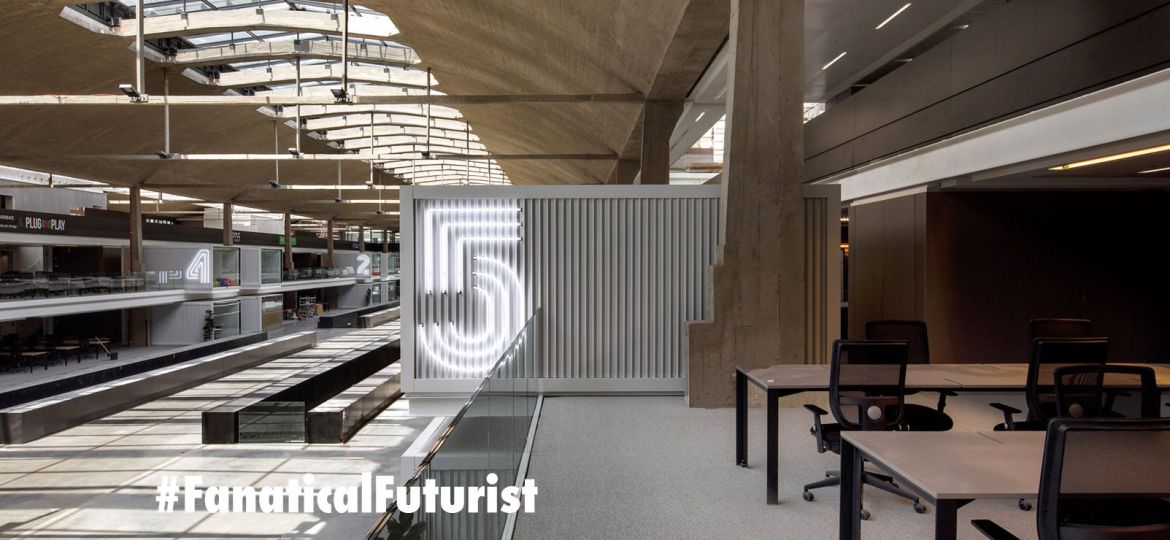
WHY THIS MATTERS IN BRIEF
The effect that climate change and pollution is having on our society and wellbeing is well documented but it’s clear from this summit that for every problem we face there are hundreds of innovative solutions.
Firstly, a big thanks to the wonderful team, lead by Santiago and Rama, at ChangeNOW for asking me to MC and keynote at this year’s International Summit for Change held at Station F, Paris, the world’s largest start up campus where, over the course of two days, thousands of visitors and hundreds of entrepreneurs and investors joined yours truly over a hundred speakers from over 20 countries to celebrate and showcase “Innovations for good.”
Loosely aligned to the United Nations seventeen sustainable development goals the summit, the first of its kind, provided entrepreneurs with a platform to showcase innovations that have a positive impact on the economy, education, energy, food security, healthcare, mobility, oceans and sustainable cities.
The event kicked off with my keynote about the “Future of Sustainable Cities,” which in its own way was ironic, because even though smarter transportation modes, planning and technologies play a pivotal role in helping cities become more vibrant and sustainable, something I discussed in the keynote, my own journey to the event was awful – all be the fact that I shouldn’t have been surprised because generally travelling anywhere nowadays is an arduous, relatively joyless task. And when you consider where we are today, as a society, with grid locked roads and smog ridden cities, and look to the future to see what transportation could, or should look like, it almost makes you cry – particularly if you’re a frequent, long and short haul traveller like me.
The gallery was not found!
View the Gallery
In this case my journey to the event comprised of a taxi that went to the wrong address and was twenty minutes late, bearing in mind it was 4am in the morning and I was standing in the pouring rain at this point suffice to say I wasn’t amused, and this could have been solved with a simple app, and yes, I’ve heard of Uber, but they’re not available in my area. Next, the train into London was delayed because of signalling problems – an all too frequent occurrence on my local line, and again, this could be solved by implementing a smart, blockchain based infrastructure network. Then the Eurostar, a 300kmh train was late into Paris, bearing in mind we now have Hyperloop “trains” emerging that travel at Mach 1 and make even the very fast Eurostar look last century, and then, finally after waiting another half an hour at the Gare Du Nord for a taxi , a licensed taxi driver I have to note, the taxi driver, and apparently mine wasn’t the only one, had absolutely no idea where he was going so, as we moved like snails through the Paris gridlock, it was Matt’s Google Maps app to the rescue.
I know there is a better way to travel, and now thanks to my work with the Dubai and Indian consortiums and governments I’m hoping we can put some of these issues behind us and use these negative experiences to help us design better transportation networks and better cities that are, dare we say, future fit. Come back to me in 2025 after you’ve been to Dubai and tell me what you think of our work… and I hope you like the flying taxis.
During my keynote I discussed the wide range of community, political and technological solutions we have at our disposal to help us build ecologically sensitive and sustainable, vibrant cities. New distributed, renewable and smart energy grids, and new grid scale storage technologies, new automated, chemical free vertical farming, clean meat and zero chemical fish farming techniques, better, fluid autonomous multi-modal transportation solutions and electric vehicles, smart homes and fridges that reduce energy consumption and waste, urban farming initiatives and many other things besides.
After my keynote it was my honour to host several panels, and the first was on new methods of farming where we heard from the founders of Agriloops, an urban shrimp farming company, Agropolis, a chemical free urban farming initiative that uses pheromones and Bicarbonate of Soda to protect crops from insect attacks, and, speaking of insects we also heard from Alexis the founder of Ynsect who is transforming how, and what we feed to our fish.
Then, later on in the day on another panel I hosted, again about the future of sustainable cities, we heard from the founders of PLP Architecture, the company behind the famous wooden skyscrapers, Woodoo, who’ve won several awards, including one from MIT, for their re-engineered, sustainable wood products that are now finding their way into the market, and Pavegen, the company behind many of the world’s energy harvesting walkways who are now gamifying their product to help cities keep individuals engaged and active.
Around twenty panels and two days later it was then time for me to, once again, face my arch nemesis and travel back to the UK, and, again, the journey didn’t disappoint – bad taxis, delays, tube closures and overcrowded trains. Joy. Bring on the future.
I’m looking forwards to the point when I can call up an on demand autonomous pod that picks me up from home, whisks me to a Hyperloop station, boards the Hyperloop to Paris, separates and then takes me the “last mile” to my final destination without any fuss. And I won’t mention anything about being able to travel to any point on Earth in under an hour, or China’s new 2,500mph train concept. Alternatively I could just give my future keynotes in virtual reality from my sofa at home… hmmmm.
















